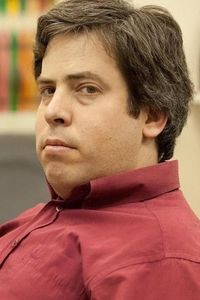Peter Campus, a celebrated and accomplished artist, first took his first breath in the year 1937 and went on to embark on an academic journey that would shape his creative trajectory. He enrolled in Ohio State College, where he devoted himself to the study of experimental psychology, immersing himself in the intricacies of the human mind and its many mysteries.
As he delved deeper into the realm of psychology, Campus's fascination with the human experience only grew stronger, and he began to see the potential for artistic expression in the very fabric of human consciousness. This intellectual curiosity ultimately led him to transfer to the City College of New York, where he pursued a degree in film.
The years spent studying film at the City College of New York proved to be a transformative experience for Campus, as it allowed him to develop a unique and innovative approach to video art. His exposure to the medium and its various possibilities sparked a creative fire within him, and he soon found himself drawn to the world of video art, where he would go on to make a lasting impact.
Campus' early explorations in video art were a groundbreaking series of experiments that delved into the intricate dynamics between the video signal, human psychology, and perception. His work astutely highlighted the video camera's ability to provide an exterior point of view, one that exists in tandem with our own, a phenomenon made possible by the vidicon tube's remarkable capacity to convert light energy into electrical energy, mimicking the intricate processes of the human retina. This unique characteristic of video technology allowed Campus to shed new light on a wide range of perceptual situations, skillfully separating the eye-surrogate from the eye-brain experience that we are all too familiar with, and in doing so, opened up new avenues for artistic expression and philosophical inquiry.
As a trailblazing figure within the avant-garde art movement of the mid-1970s, Campus was an integral part of a select group of visionaries who pushed the boundaries of television and video art. His work took shape within the innovative environments of WGBH in Boston and WNET in New York, where he had the opportunity to experiment and hone his craft in the cutting-edge television labs.
Throughout his oeuvre, Campus's artistic endeavors span a diverse range of creative expressions, from single-channel video pieces that showcase his mastery of the medium, to groundbreaking closed-circuit video installations that seamlessly integrate technology and art. His elaborate sculptural creations, meanwhile, serve as testament to his boundless imagination and technical prowess, as he skillfully incorporates video cameras, projectors, and monitors to create immersive and thought-provoking experiences.
Person Biography:
Daniel J. Campus was born in 1943 in Brooklyn, New York. He received his Bachelor of Fine Arts degree from the School of Visual Arts in New York City in 1966, and later earned his Master of Fine Arts degree from the University of California, Los Angeles in 1971.
Throughout the extensive trajectory of his professional endeavors, Campus has persistently strived to transcend the conventional confines of video art, diligently probing the fundamental attributes of "live" video and its remarkable capacity to revolutionize our comprehension of perception and reality.








